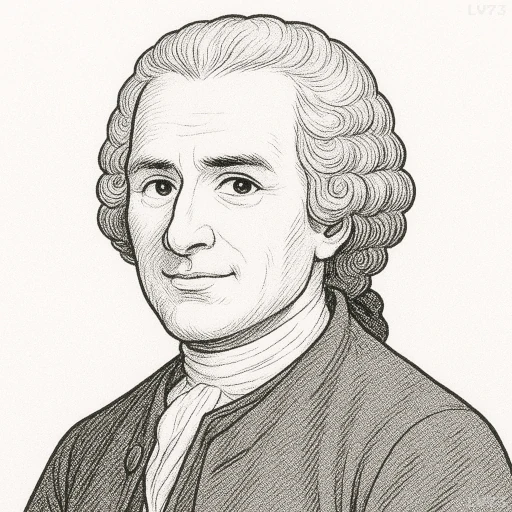“Force does not constitute right… obedience is due only to legitimate powers.”

- June 28, 1712 – July 2, 1778
- Born in Geneva
- Philosopher, political philosopher, writer, composer
table of contents
Quote
“Force does not constitute right… obedience is due only to legitimate powers.”
Explanation
In this quote, Jean-Jacques Rousseau emphasizes the distinction between force and justice. He argues that just because someone has the power to use force does not mean they have the right to impose their will. Legitimacy in power, according to Rousseau, is based on principles of justice, equality, and consent from the governed, not simply the ability to coerce others. This reflects Rousseau’s broader critique of arbitrary authority and his belief that legitimate political power must be grounded in the general will of the people, as expressed in his work The Social Contract. For Rousseau, the idea of power rooted in force undermines the very notion of freedom and self-governance.
Historically, this quote is a critique of the monarchies and dictatorships of Rousseau’s time, where rulers often maintained authority through military power or hereditary succession, rather than through the will of the people. Rousseau argued that true political authority arises not from force or despotism, but from a social contract in which individuals agree to form a collective body governed by common interests. This contract, in Rousseau’s view, allows for the creation of a government that is both legitimate and just, with the people’s consent at its core.
In modern times, this quote resonates in the context of democracy and human rights. In democratic societies, the idea that power should be derived from the consent of the governed is a fundamental principle. Rousseau’s distinction between legitimate power and force calls attention to the dangers of authoritarianism and the importance of ensuring that political systems are rooted in justice and accountability. It encourages citizens to question the legitimacy of power when it is maintained through coercion or violence, and to demand that leaders derive their authority from the will of the people rather than through oppressive means.
Would you like to share your impressions or related stories about this quote in the comments section?



